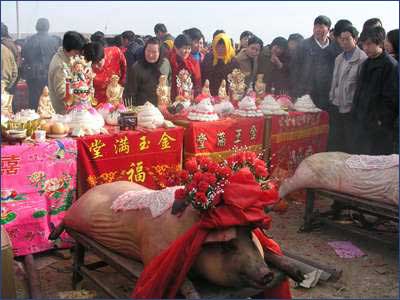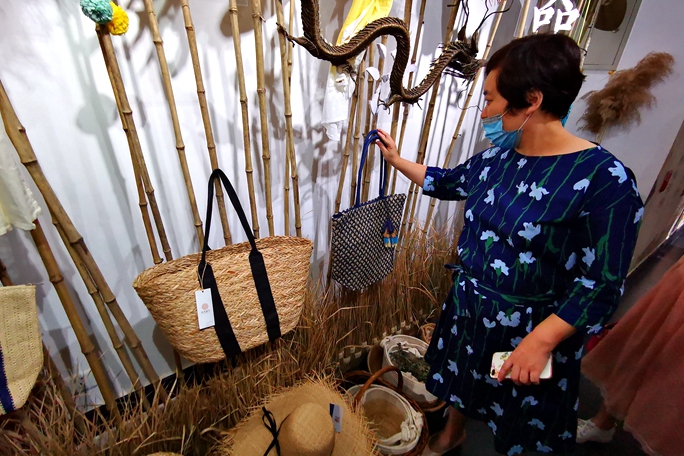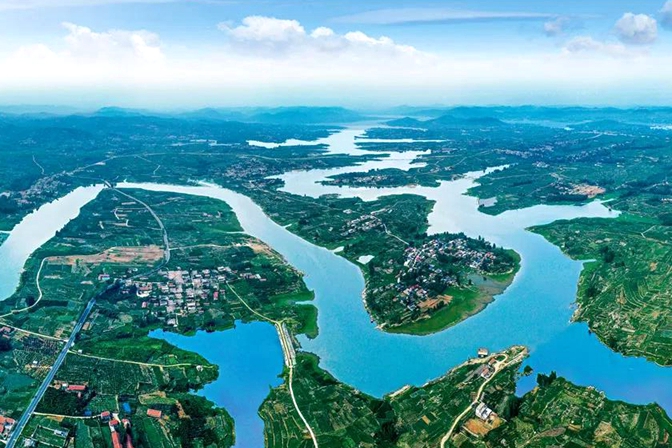Fishermen Hold Sacrificial Rites for the Sea

Grain Rain, which in Chinese literally means “the rain is beneficial to all kinds of grain,” comes 6th among the 24 solar terms and plays an important role for farming. From this day on, due to increasing precipitation, abundant water provides moisture for all creatures on land. Fish and shrimp start swimming inshore, and accordingly we have a common saying, “Hundreds of fish swim ashore, when grain rain knocks at the door.”
“The Grain Rain signals that it’s getting warm,” remarks Dai Yushan, an aged gentleman with a deep understanding of the fishery culture of Rongcheng. “Following the law of seasonal migration, abyssal fish and shrimp always flock inshore at this time of year. Fishermen who suffer a break for the whole winter begin to fix their nets and prepare for the fishing operation. Unveiling the curtain of the new year’s fishing, it is actually Grain Rain that acts as an opening ceremony for the coming fishing activity.”
To pray for the safety of the fishermen and a good harvest, devout fishermen alongside Jiaodong peninsula hold grand sacrificial rites for the sea during the 3 days before and after Grain Rain arrives.
One-thousand-year history of sacrificial rites in Grain Rain
The customs of offering sacrifices for the sea on Grain Rain came into existence immediately after the development of offshore production. As is recorded on historical materials, fishermen in Rongcheng have started to fish offshore since the Spring and Autumn period, and the custom of sacrificial offerings on Grain Rain has lasted more than a thousand years.
Before liberation, fishermen in Rongcheng were in the employ of fishery firms, so most of the fishing gears were in the charge of those capitalist merchants. As the spring flood drew near, fishery firms held sacrificial rites for the sea, fishing boats and the Sea Goddess. After the foundation of the PRC, the word “fishery firm” gradually became obsolete. However, the sacrificial rites for the sea have been held voluntarily by fishermen alongshore, and the content of the ceremony has been passed down to the present day.
For mass ceremony, fishermen will shave a fat pig and redden it with its blood beforehand, and prepare ten Bobos, which are a kind of pastry,.a crock of Kaoliang spirit and a parcel of firecrackers. When it comes to household ceremony, people prepare only a pig head, even pig-shaped Bobos, if short of pigs, instead of a whole pig. During the rites, people put shrine offerings on the credence and burn joss sticks, then perform a ritual kowtow to the heaven. After the rites, fishermen go symbolically fishing on the sea, cast their first net of the year and come back around 11:00 am. According to the convention of fishermen, the amount of fish caught in the first net indicates the harvest of fishing industry of this year. Thereafter fishermen start to cook the fresh fish and shrimp and enjoy a banquet of delicious seafood and various entertainments up to night. After going fishing offshore, fishermen are not allowed to drink alcohol anymore. With the blessing of the Sea Goddess and the strength gained through a generous meal, will not fishermen live a life in peace and affluence this year?
In Shidao Island and Lidao Island of Rongcheng, the celebration activities are held on a large scale and for a long time. Besides the sacrificial rites for the sea, streets and alleys are crowded with people performing stilt walks, dragon and lion dances, which appears more lively than when it is spring Festival. When darkness falls, lights of every fishing port are brightly lit. Organized by local businesses and fishery firms, a ceremony of setting off sea lanterns is held with donations from all walks of life. Within several days afterward, traditional operas will be put on around the clock in every village, which can last four or five days at most. All the fishing villages are immersed in the celebration. In Longxu Island and Chengshantou Island, there is a specific rite to offer sacrifices for Qin Shi Huang.

 Shandong Culture and Tourism Consumption Season
Shandong Culture and Tourism Consumption Season Culture, tourism sectors pick up in Shandong as epidemic wanes
Culture, tourism sectors pick up in Shandong as epidemic wanes

